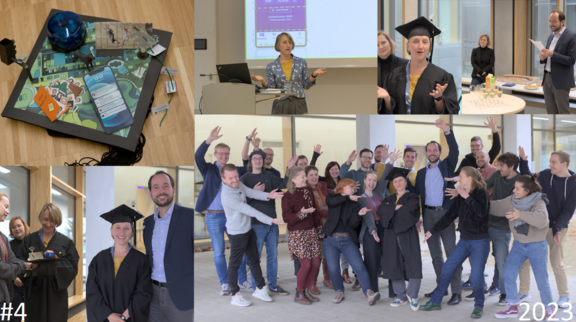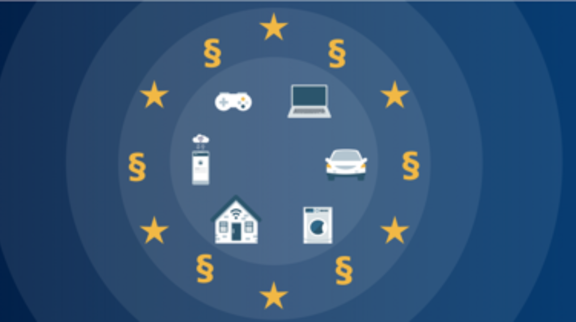News

Study published on the lack of legal certainty for big data and AI
How can big data and AI applications be used profitably without violating data protection and IT security? Our data protection experts addressed this question in the recently published legal study "Systematic Privacy in real-life Data Processing Systems". They examined current regulations from the legal areas of data protection, IT security law and copyright law in relation to big data and also looked at the draft EU regulation on artificial intelligence (KI-VO-E).
read more
Congratulations to Dr. rer. nat. Jasmin Haunschild
Jasmin Haunschild, an ATHENE scientist, completed the final part of her doctoral thesis at the Department of Computer Science at the TU Darmstadt. Her thesis titled "Enhancing Citizens' Role in Public Safety: Interaction, Perception and Design of Mobile Warning Apps" was written as part of the ATHENE research area Secure Urban infrastructures (SecUrban). Her thesis was supervised by Prof. Dr. Dr. Christian Reuter and co-supervised by Prof. Dr.-Ing. Frank Fiedrich. The thesis was reviewed and recommended for acceptance by the Department of Computer Science. The oral examination was chaired by Prof. Dr. Marco Zimmerling, with Prof. Dr. Jan Gugenheimer and Prof. Dr. Joachmin Vogt also involved as examiners.
read more
The Cyber Resilience Act (CRA)
Since the European Commission presented a proposal for the "Regulation on horizontal cybersecurity requirements for products with digital elements", the Cyber Resilience Act (CRA), in September 2022, there has been a lot of discussion about it, such as the regulation of open source products. Even though many details are still unclear, companies are trying to prepare for the upcoming changes at an early stage: These concern, for example, the handling of vulnerabilities, update management or security testing of products.
Our experts at Fraunhofer SIT combine technical and legal expertise, support product managers and development managers in companies in their preparations and provide recommendations for implementing the CRA.

ATHENE researcher develops an AI assistant for researchers
The Ubiquitous Knowledge Processing (UKP) Lab led by ATHENE researcher Prof. Iryna Gurevych at TU Darmstadt has received the Amazon University Collaboration Award. As part of the funding, the research team will collaborate with AI researchers from Amazon Alexa in Berlin. Together, they are developing a "virtual research assistant" that helps researchers quickly and reliably close their own knowledge gaps by answering their questions.
read more